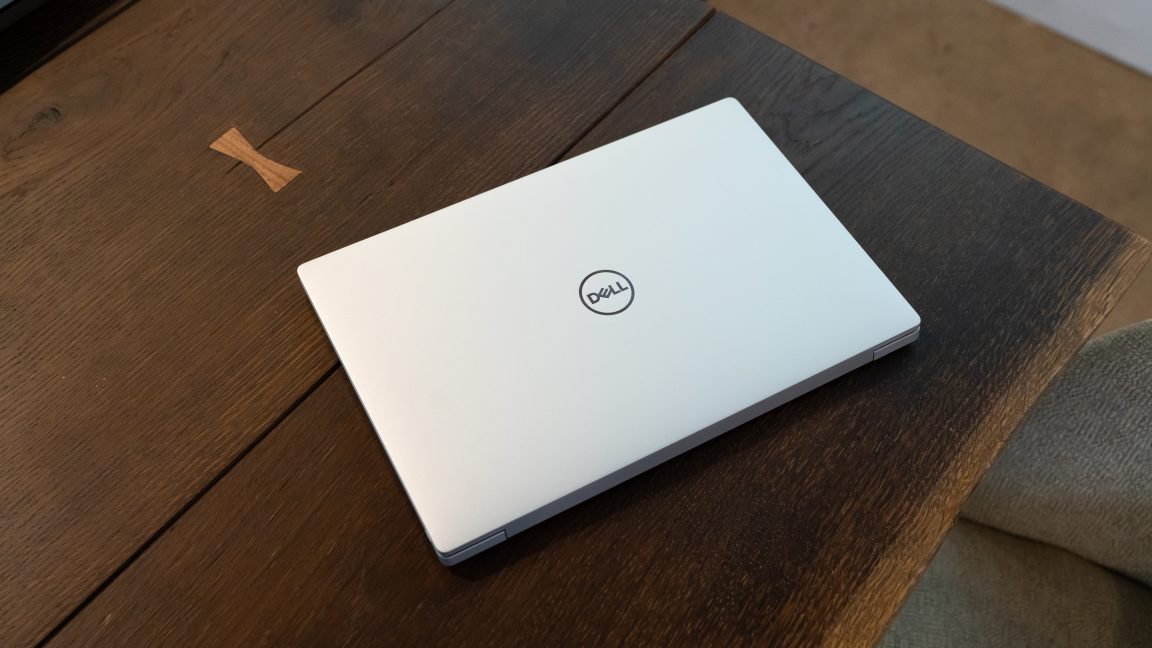
ARSTECHNICA.COM
The end of an era: Dell will no longer make XPS computers
RIP The end of an era: Dell will no longer make XPS computers Dell won't make Precision or Inspiron PCs anymore, either. Scharon Harding Jan 6, 2025 2:45 pm | 48 A Dell XPS. Credit: Scharon Harding A Dell XPS. Credit: Scharon Harding Story textSizeSmallStandardLargeWidth *StandardWideLinksStandardOrange* Subscribers only Learn moreAfter ditching the traditional Dell XPS laptop look in favor of the polarizing design ofthe XPS 13 Plus released in 2022, Dell is killing the XPS branding that has become a mainstay for people seeking a sleek, respectable, well-priced PC.This means that there won't be any more Dell XPS clamshell ultralight laptops, 2-in-1 laptops, or desktops. Dell is also killing its Latitude, Inspiron, and Precision branding, it announced today.Moving forward, Dell computers will have either just Dell branding, which Dells announcement today described as designed for play, school, and work, Dell Pro branding for professional-grade productivity, or be Dell Pro Max products, which are designed for maximum performance." Dell will release Dell and Dell Pro-branded displays, accessories, and "services," it said. The Pro Max line will feature laptops and desktop workstations with professional-grade GPU capabilities as well as a new thermal design.Dell claims its mid-tier Pro line emphasizes durability, withstanding three times as many hinge cycles, drops, and bumps from regular use as competitor devices. The statement is based on internal analysis of multiple durability tests performed" on the Dell Pro 14 Plus (released today) and HP EliteBook 640 G11 laptops conducted in November. Also based on internal testing conducted in November, Dell claims its Pro PCs boost "airflow by 20 percent, making these Dells quietest commercial laptops ever.Within each line are base models, Plus models, and Premium models. In a blog post, Kevin Terwilliger, VP and GM of commercial, consumer, and gaming PCs at Dell, explained that Plus models offer the most scalable performance and Premium models offer "the ultimate in mobility and design.By those naming conventions, old-time Dell users could roughly equate XPS laptops with new Dell Premium products.The Dell portfolio will expand later this year to include more AMD and Snapdragon X Series processor options," Terwilliger wrote. "We will also introduce new devices in the base tier, which offers everyday devices that provide effortless use and practical design, and the Premium tier, which continues the XPS legacy loved by consumers and prosumers alike."Meanwhile, Dell Pro base models feel like Dells now-defunct Latitude lineup, while its Precision workstations may best align with 2025s Dell Pro Max offerings.Dell will maintain its Alienware line of gaming PCs and peripherals (Dell acquired Alienwarein 2006).Dells reasoningIn a press release, Dell looked to explain the changes, arguing that more unified branding will make it easier and faster to find the right PCs, accessories, and services.The new marketing tactics also align with Dell's (and virtually every other PC brands) efforts to push so-called AI PCs onto consumers. Per Terwilliger:The AI PC market is quickly evolving. Silicon innovation is at its strongest and everyone from IT decision makers to professionals and everyday users are looking at on-device AI to help drive productivity and creativity. To make finding the right AI PC easy for customers, weve introduced three simple product categories to focus on core customer needsKeen eyes may have seen this coming. In addition to overhauling the XPS lineup to a polarizing designincluding a borderless haptic touchpad, lattice-free keyboard, and capacitive touch function rowin early 2024, Dell also discontinued the XPS 17, XPS 15, and XPS 2-in-1 detachable last year. The 2024 XPS laptop lineup: 13-inch, 14-inch, and 16-inch. Credit: Scharon Harding The 2024 XPS laptop lineup: 13-inch, 14-inch, and 16-inch. Credit: Scharon Harding On the other hand, Dells XPS lines, as well as its business lines, have become popular go-tos for consumer and business users seeking reliable performance and pricing. For the unaffiliated, it may not have been immediately obvious why one should buy an XPS over a Latitude. But after a small amount of research and years of Dell pushing these differentiated lines, many technologists had become well accustomed to Dell's branding, what each line broadly represented, and the type of users each line targeted.The new product line names are also pretty similar to one another and to the naming of the sub-tiers. Moving to Standard, Pro, and Pro Max branding with Base, Plus, and Premium sub-tiers may not immediately convey which products are for consumers versus businesses, creative professionals, budget shoppers, or big spenders.Its also hard to immediately see how this new branding would help clarify the AI capabilities of computers. Simultaneously, people remain skeptical about the need for AI features in their computers at all. For example, a survey of 6,000 people in France, Germany, and the United Kingdom that Intel conducted in November found that 44 percent of respondents see AI PCs as a gimmick or futuristic technology," and 53 percent believe that AI PCs "are only for creatives or technical professionals. New, less imaginative branding is unlikely to clear those doubts.Scharon HardingSenior Technology ReporterScharon HardingSenior Technology Reporter Scharon is a Senior Technology Reporter at Ars Technica writing news, reviews, and analysis on consumer gadgets and services. She's been reporting on technology for over 10 years, with bylines at Toms Hardware, Channelnomics, and CRN UK. 48 Comments
0 Comments
0 Shares
106 Views


